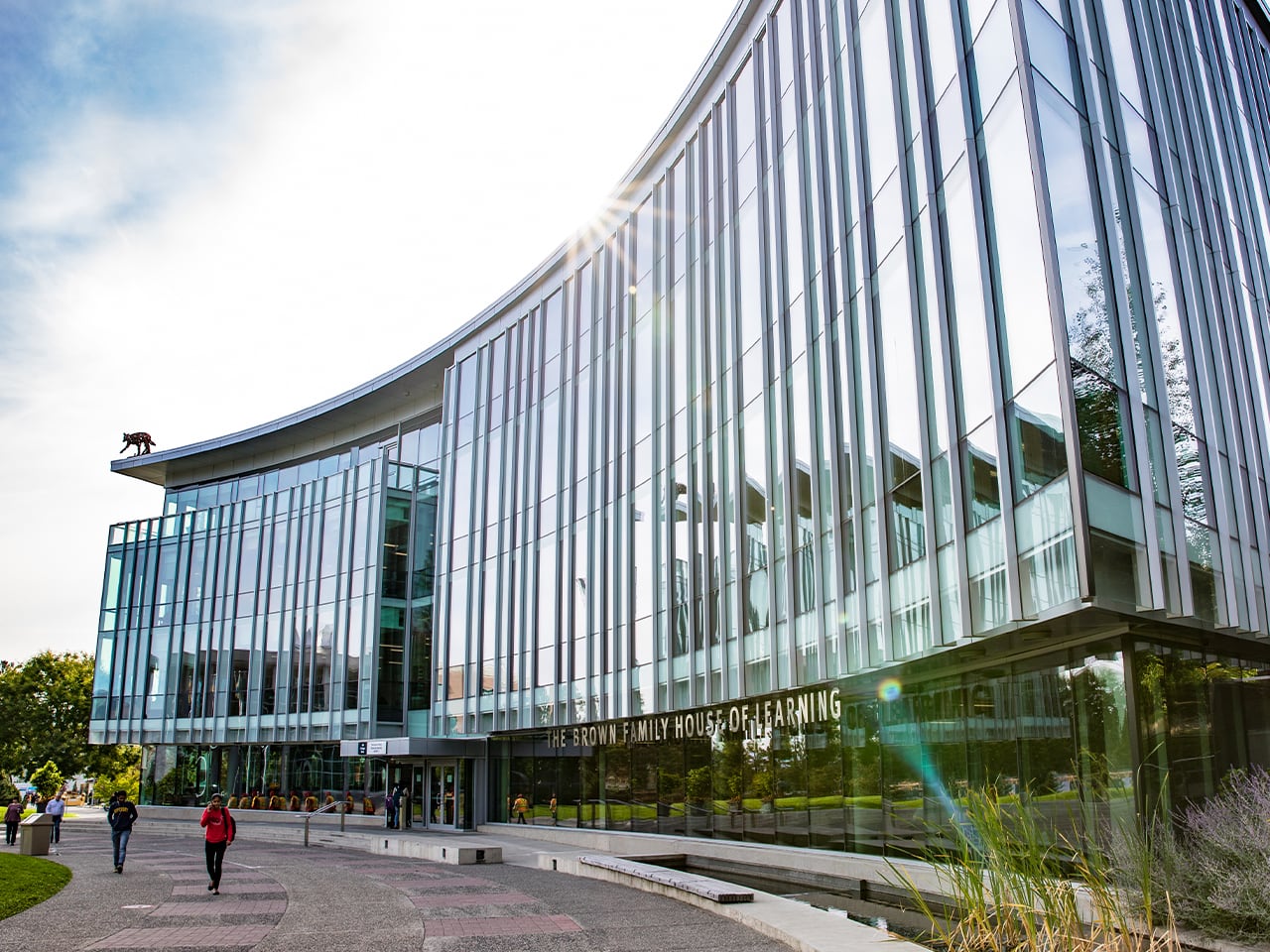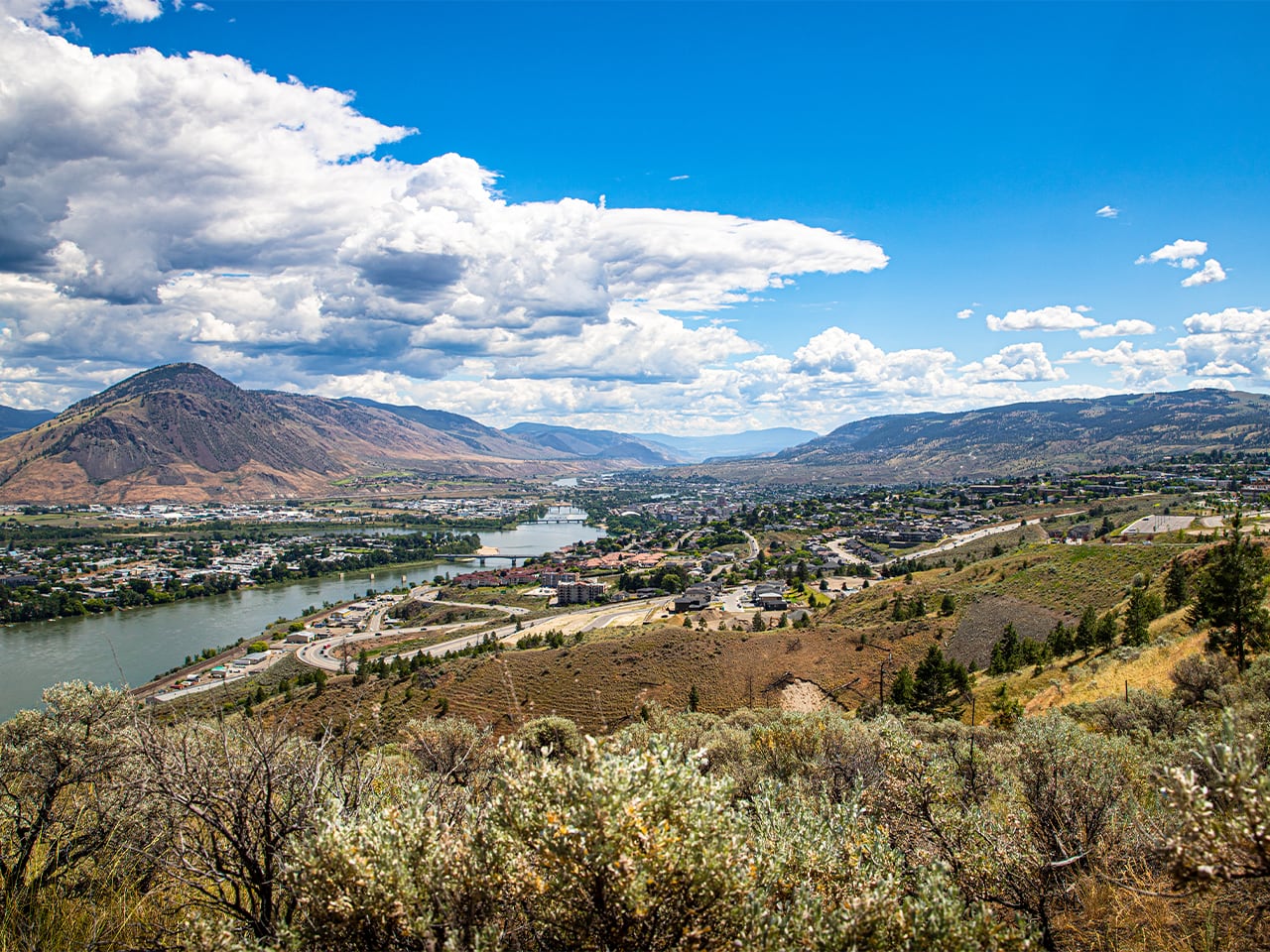Get ready for an exciting, high-demand career in health care by gaining your Respiratory Therapy (RT) diploma while simultaneously advancing your education with a Bachelor of Health Science (BHSc) degree through the dual credential program option. Graduate with both your three-year diploma and BHSc degree, in just four years.
With the RT Diploma, you will learn the latest in respiratory care theory and gain the active, hands-on laboratory learning required to succeed as a respiratory therapist, the only allied health profession with curriculum and clinical practice in critical and community care.
Why pursue a dual Respiratory Therapy Diploma and Bachelor of Health Science degree through TRU?
- TRU is a national leader in respiratory therapy education and the only university in BC to offer a diploma in Respiratory Therapy (RT).
- TRU’s RT diploma is accredited by Accreditation Canada, which is the national accrediting body.
- The dual credential option means students will complete an RT diploma and Bachelor of Health Science (BHSc) degree in just four years.
- Attaining a BHSc degree in addition to an RT Diploma can increase your salary and your job prospects. It is a flexible degree that may allow you to pursue administration, management or research positions in health care. You can also use your BHSc degree to apply for advanced graduate studies in areas such as health administration, pathology and public health.
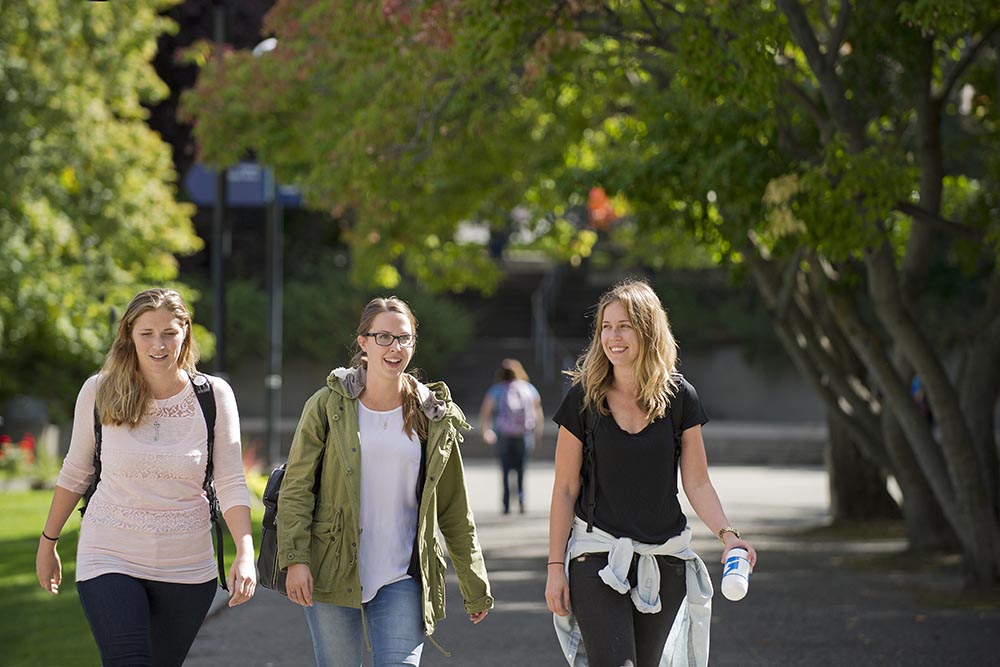
What will I learn?
You will prepare for an exciting and rewarding career as a respiratory therapist (RT)—a licensed health-care professional specializing in cardiopulmonary care. You will practise the clinical skills necessary to gain the specialized medical expertise and understand the advanced practice required to become a successful RT.
- Learn the latest in respiratory care theory.
- Take an active, hands-on approach to learning in the laboratory and simulation lab.
- Engage in an month clinical hospital internship.
- Learn to apply lifesaving skills to people in need
- Register to write the National RT Certification Examination in respiratory therapy in January or July after graduating from the program.
By completing your BHSc degree alongside the RT Diploma, you are able to gain advanced education, expanding your career options and reaching your professional goals sooner.
-
$72,892 Annual provincial median salary for an RT
-
$30-$51 Provincial hourly rate for an RT
-
+1.4% Forecasted average employment growth rate for RTs (2024-2029)
-
560 10-year expected job openings for RTs
2019 Job Bank Wage data, BC Labour Market Outlook
-
$84,399 Annual median salary for a BHSc graduate
-
96% BHSc graduates are in the labour force
-
93% Of BHSc graduates said the quality of instruction was very good or good
-
149,700 Job openings projected in the health care and social assistance industry
BC Student Outcomes from 2020 and 2022, 10-year project by the 2022 BC Labour Market Outlook
The Respiratory Therapy (RT) diploma program prepares graduates to meet workplace challenges and find success as an RT through classroom, laboratory and clinical experiences including:
- Lectures
- Clinical applications
- Demonstrations
- Discussions
- Experiments
- Observational visits
- Self-directed studies
- Simulations
In the first three years of the dual credential program, you will complete courses and practical labs. You will take part in observational rotations at one or more hospitals with RT departments in your first year.
In your final year, you will attend an 11-month clinical internship at hospitals affiliated with TRU.
The clinical internship includes three components. Levels one and two are completed at two different hospitals with adult patients. The final component requires completing a clinical rotation in a pediatric and neonatal setting.
Upon graduation, you will receive a diploma in respiratory therapy and can find employment as a graduate RT while waiting to write the National RT Certification Examination.
As a graduate of the dual credential program, you will also gain 60 credits that can be used toward the Bachelor of Science (BSc). Some lower level prerequisites will need to be completed in order to enter required upper level BSc courses.
Graduates of the RT diploma can also apply for the Anesthesia Assistant Post-Diploma program through Open Learning.
Required courses
Courses for years one, two and three of the dual credential option, are offered on the Kamloops campus. The upper-level required courses for the BHSc are offered through TRU, Open Learning. Courses required during the clinical year are delivered at clinical affiliate sites.
First year (36 credits)
First semester (18 credits)
- BIOL 1592, Human Biology: Anatomy and Physiology 1 (3)
- CMNS 1810, Professional and Academic Composition (3)PHYS 1580, Physics for Respiratory Therapists (3)
- RESP 1580, Principles and Application of Respiratory Therapy Equipment 1 (3)
- RESP 1690, Cardiopulmonary Anatomy and Physiology (3)RESP 2720, Professional Issues in Health Care (3)
- RT Program Medical Terminology (online Moodle course)
Second semester (18 credits)
- BIOL 1692, Human Biology: Anatomy and Physiology 2 (3)
- CMNS 2290, Technical Communication (3)
- RESP 1650, Introduction to Mechanical Ventilation (3) RESP 1680, Principles and Application of Respiratory Therapy Equipment 2 (3)
- RESP 2510, Pharmacology (3)
- STAT 1200, Introduction to Statistics (3)
Second year
Third semester (18 credits)
- RESP 2500, General Pathophysiology (3)
- RESP 2540, Client-Centered Education and Community Health (3)BHSc courses
All third semester, second-year dual credential RESP courses are prerequisites for fourth semester, second-year dual credential RESP courses.
Fourth semester
- RESP 2600, Respiratory Pathophysiology (3)RESP 2620, Anaesthesia (3)
- RESP 2660, Chronic Disease Management (3)
- BHSc courses
Third year (53 credits)
Fifth semester
- RESP 2550, Mechanical Ventilation (3)
- RESP 2570, Blood Gas Analysis (3)
- RESP 2680, Pulmonary Function (3)
- BHSc courses
All fifth semester, third-year dual credential RESP courses are prerequisites for sixth semester, third-year dual credential RESP courses.
Sixth semester
- RESP 2630, Perinatal and Pediatric Respiratory Care (3)
- RESP 2650, Application of Mechanical Ventilation (3)
- RESP 2710, Application of Respiratory Therapy Practice (3)
- BHSc courses
Fourth year / clinical practicum (53 credits)
- RTCL 3040, Neonatal and Pediatrics (8)RTCL 3110, Respiratory Therapy Clinical (Level 1) (19)
- RTCL 3120, Respiratory Therapy Clinical (Level 2) (18)
- RTCT 3040, Respiratory Therapy Clinical Theory: Neonatal and Pediatrics (2)RTCT 3110, Respiratory Therapy Clinical Theory (Level 1) (3)
- RTCT 3120, Respiratory Therapy Clinical Theory (Level 2) (3)
Admission requirements
You must apply to the respiratory therapy diploma program and, once admitted, declare the dual credit option before or during your first year of the program.
Entry requirements
The minimum educational requirements — obtained within the last five years — must be met in order to be accepted into the program or specific stream. However, students must often exceed these minimum requirements as the program has become very competitive.
Seats for high school applicants are limited. One to two years of post-secondary education in a Bachelor of Science degree program is recommended for successful admission.
Educational requirements
- BC Grade 12 graduation with a C+ minimum average or equivalent
- Foundations of Mathematics or Pre-calculus 12 (or equivalent) with a minimum C+
- Chemistry (or equivalent) with a C+ minimum grade
- Anatomy and Physiology (or equivalent) with a C+ minimum grade
- English Studies or English First Peoples 12 with a minimum of 73% (or equivalent)
- Physics (or equivalent) with a C+ minimum
General requirements
- Completion of the program information session (proof of completion required)
- Completion of "C" level CPR with AED (upon acceptance)
- Complete immunization schedule (upon acceptance)
- Criminal record check (upon acceptance)
Where will this take me?
Pursuing a career in respiratory therapy opens a world of possibility in health care. It is a high-demand field, and RTs are urgently needed in Canada and abroad to treat, manage and care for patients with cardiopulmonary and other breathing disorders. RTs directly impact the lives of the youngest to the most senior patients in various health care settings.
RTs work in various hospital and clinical settings, including:
- High-risk areas such as emergency departments and adult, pediatric and/or neonatal intensive care units.
- Operating rooms.
- Various hospital wards.
- Diagnostic departments such as pulmonary function labs and bronchoscopy.
- Out-patient clinics.
- In the community in areas such as home care, obstructive sleep apnea clinics, asthma/respiratory education, pulmonary rehab clinics and more.
- Marketing and sales of respiratory equipment.
- Policy and research.
Further study
As a graduate of the dual credential stream, you will gain 60 credits that can be applied to a Bachelor of Science (BSc). Some lower level prerequisites will need to be completed in order to enter required upper level BSc courses.
As a graduate of the RT diploma, you can also apply for the Anesthesia Assistant Post-Diploma program through Open Learning.
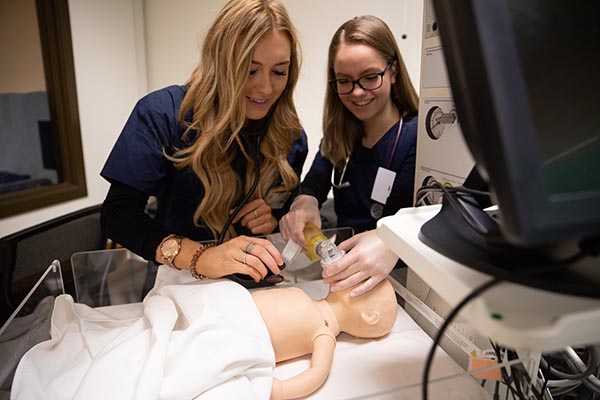
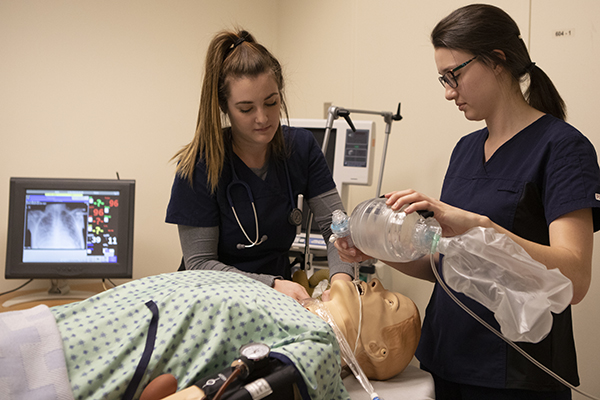
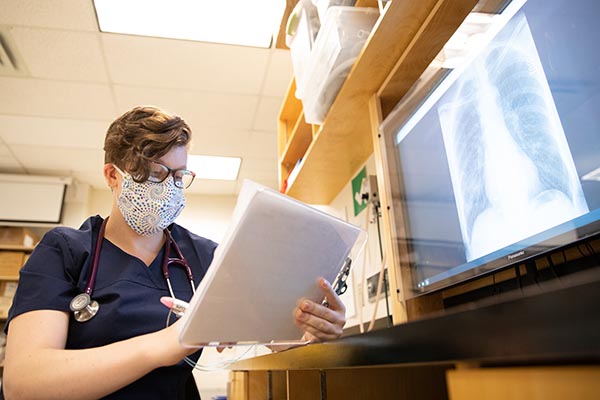
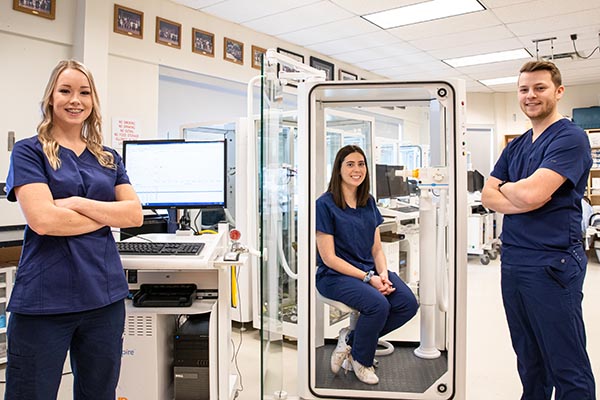
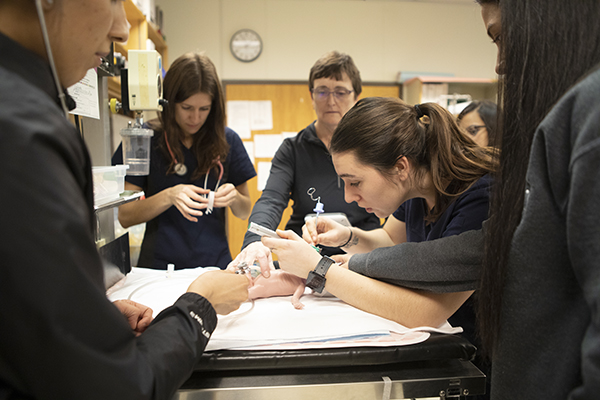
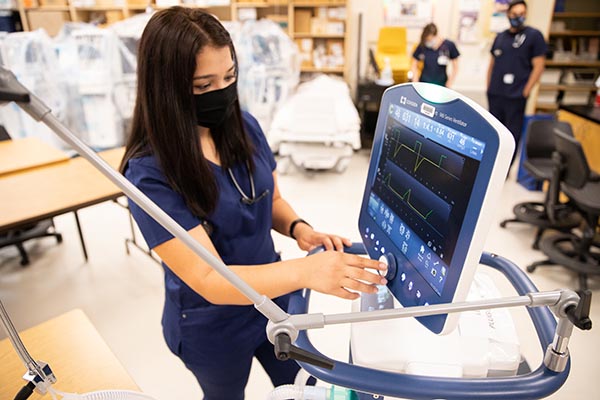
Program Details
- Credential
- Bachelor of Health Science, dual credential (Respiratory Therapy)
- Delivery
- Kamloops
- Length
- Four years
- Intake dates
- September
- Applications
- Not accepting applications
- International
- Open to international applicants
